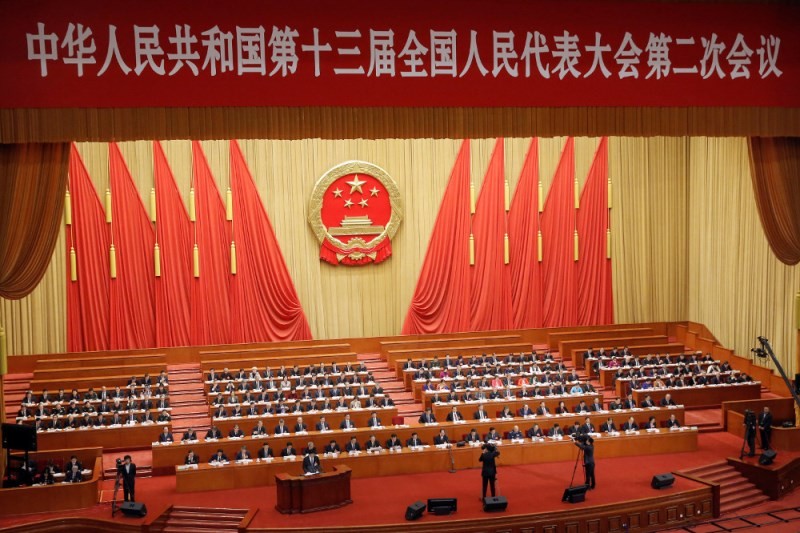
A new crime centered around organizing and soliciting by foreign casinos forms one of a number of proposed amendments to China’s criminal law to be reviewed by the Standing Committee of China’s National People’s Congress this week.
According to a report by state-owned news agency China News Service, the new definition of crimes committed by overseas casinos would specifically target those operations looking to lure Chinese gamblers. There would also be new penalties introduced for “opening a casino” within mainland China, although exactly what any penalties would be – or how they might be enforced – have yet to be revealed.
Under current law, serious gambling crimes can attract up to 10 years in prison or substantial fines.
The China News Service report said cross-border gambling was responsible for “large capital outflow” and caused “serious damage to the nation’s image and economic security.”
A second reading of the proposed amendment to China’s criminal law is scheduled to take place this week after the Standing Committee of the 13th National People’s Congress began its latest five-day session on Tuesday.
Other revisions to the criminal law set to undergo a second reading include lowering the age of criminal responsibility for some serious violent offenses committed by minors, plus revisions on crimes such as rape and indecency involving minors, malpractice in drug and food supervision, and identity theft.
Drafts are generally required to be read at least three times before becoming law, fellow state-run news agency Xinhua noted.
A crackdown on gambling by mainland Chinese authorities has become a common theme this year, with China’s Ministry of Culture and Tourism announcing in August that it had established a “blacklist” of overseas tourist destinations it said were disrupting the nation’s outbound tourism market by opening casinos targeting mainland Chinese customers.
The blacklist, devised in conjunction with other departments, would see travel restrictions imposed on Chinese citizens going to names overseas cities and scenic spots, the Ministry said, although it failed to identify exactly which locations it was referring to.
Concerns over capital outflow have, however, been blamed for Macau’s slower than expected recovery from COVID-19 even after the Individual Visit Scheme was reinstated for residents of Zhuhai from 12 August, Guangdong Province from 26 August and all of mainland China from 23 September.
In a 1 October note from investment bank Credit Suisse, analysts Kenneth Fong, Lok Kan Chan and Rebecca Law said crackdowns on shadow banking and a ban on gambling activities had negatively affected the junket system and player sentiments, with big players unwilling to come and those who do come spending much less than usual levels.
In a new note published Tuesday, those same analysts stated that average player spend was down by a third during the first two weeks of October.
JP Morgan’s DS Kim, Derek Choi and Jeremy An said this latest move could prove to be another strike at the heart of Asia’s junket business.
“While promotion of gambling for/by overseas casinos has already been understood to be illegal for industry participants, a clear-cut ban on such activity would undoubtedly lead to fear among many junket operators and agents, in our view, as even a personal solicitation may be viewed as (very) illegal under the reported amendment,” they said.
“Although this report itself is not thesis-changing, a clear escalation of the gambling clampdown in China would continue to weigh on VIP demand (and possibly some high-end premium mass) for a while, due to its impact on liquidity supply (such as junkets and underground banks) and gambler sentiment.”
(Photo: CNS/Thomas Peter, Reuters)

